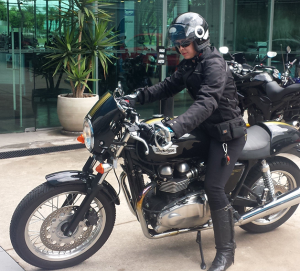My Bio

Handkerchief was the first English word I learned, at age 10. It was all I needed to fall in love with English. We already had French at school, but I felt I “needed” to speak English as well. And after years attending a number of English schools, I finally obtained my first English Proficiency Certificates, from the Cambridge and Michigan Universities. At age 17, I started teaching EFL at language schools and to groups of corporate executives in São Paulo. Meanwhile I worked hard to get my industrial design degree from FAAP.
Following a one-year stay in London, where I brushed up my English accent, I joined the translation/interpreting program of Associação Alumni and embraced conference interpreting and translation. For five years, I worked as the assistant editor to the International Weekly Edition of a prestigious business newspaper at the time, where I acquired advanced translation and editing skills in key areas such as politics, finance, IT, agribusiness, the economy and markets.
An intensive Interpreting Skills Enhancement program at Georgetown University, in D.C., soon followed. In 2001, I obtained the Diploma de Español como Lengua Extranjera – DELE, from the Miguel de Cervantes Institute in São Paulo and have since applied myself to studying Spanish as well.
The idea of working as a master of ceremonies (M.C.) began to take shape in 2014, and was reinforced by courses with renowned professionals. It has become another very rewarding professional activity.
As an interpreter, my areas of expertise include smart cities, architecture, finance, investments, business, human and animal nutrition, aviation, automotive, motorcycling, mechanical engineering, psychology, sociology, IT & technology and politics. I’m also a member of the Brazilian Association of Professional Conference Interpreters (APIC).
Lessons learned, after 27 years of experience in corporate events ? The client is always right and preparing in advance for each and every new job, as an interpreter or an M.C., always pays off. Punctuality is also extremely important – that’s why, to lose São Paulo traffic, I’ve now cut down the number of wheels I use to only two.






